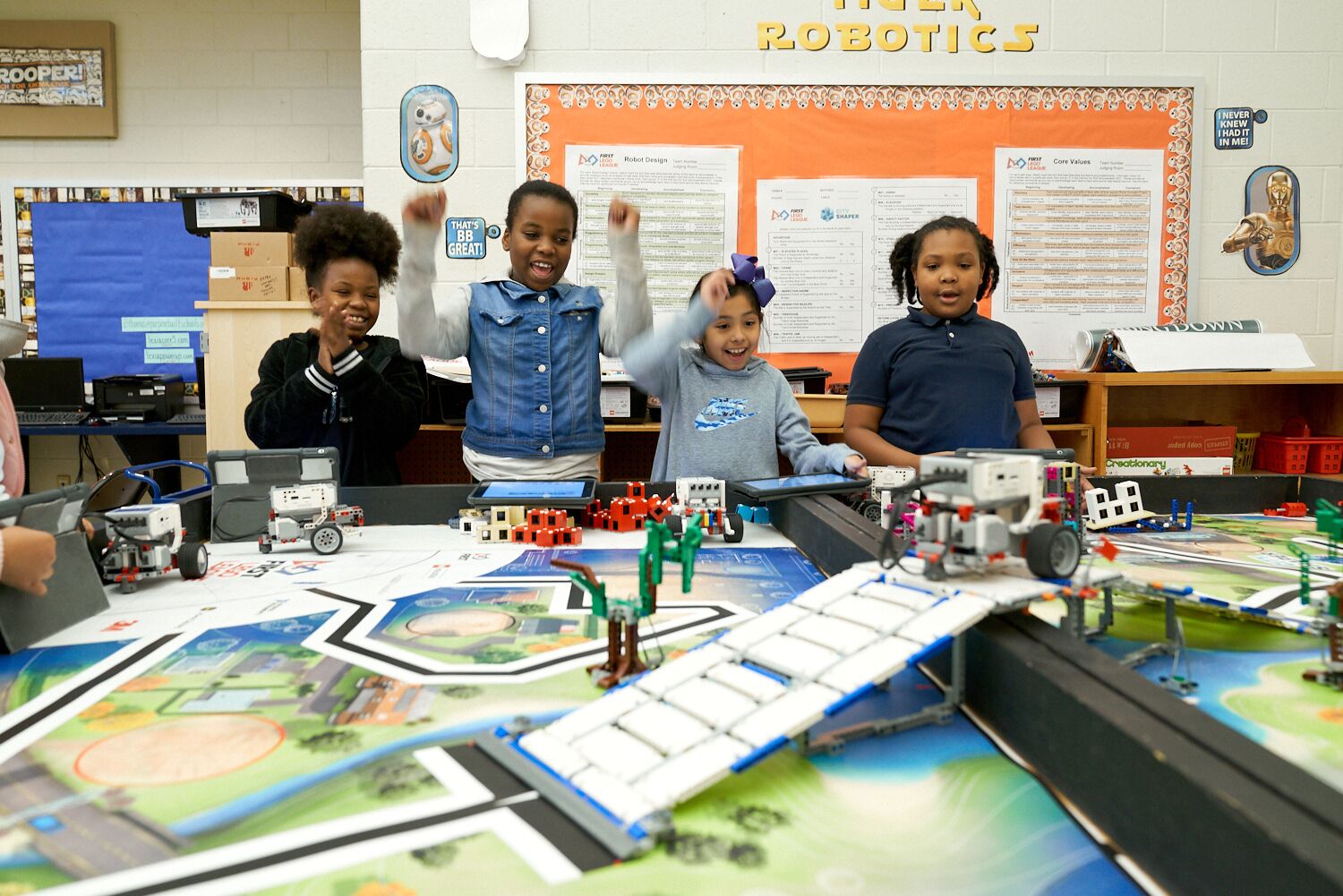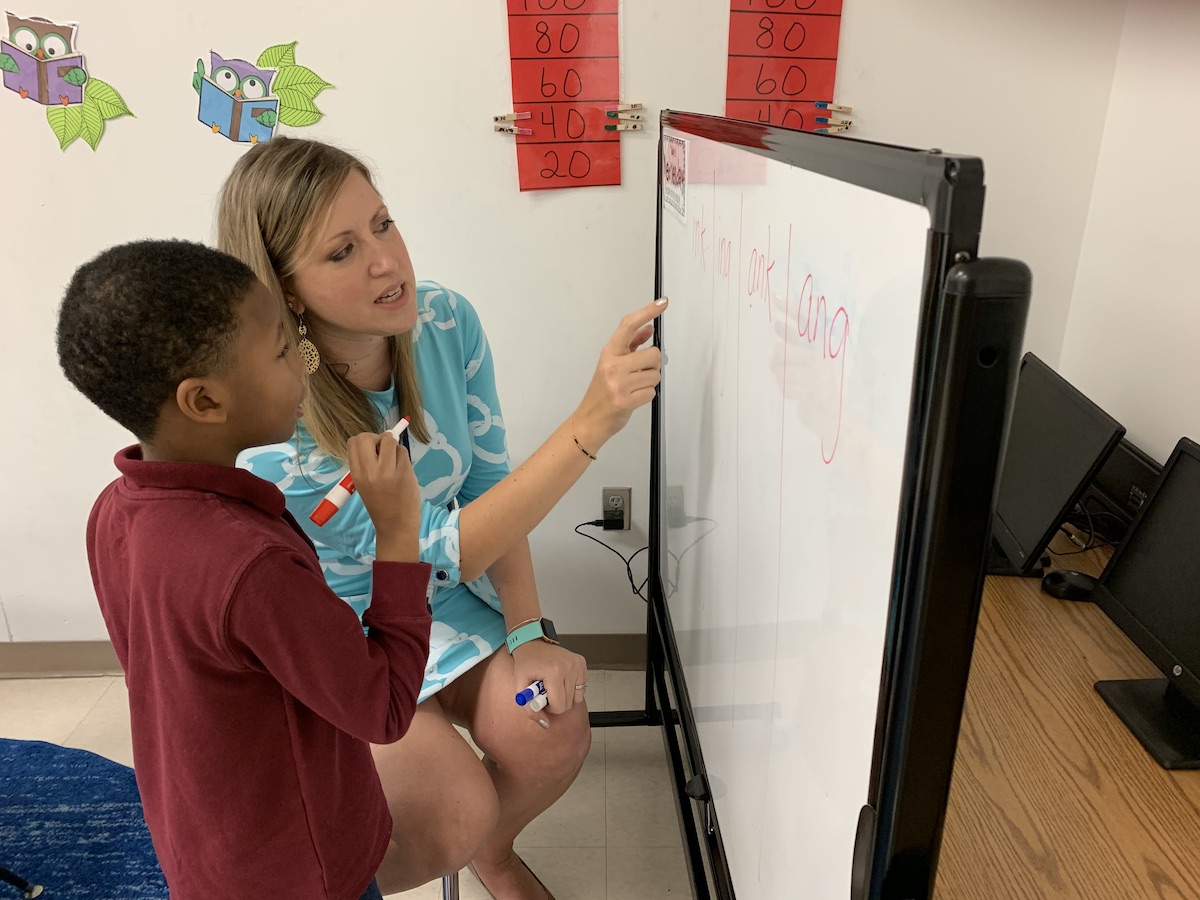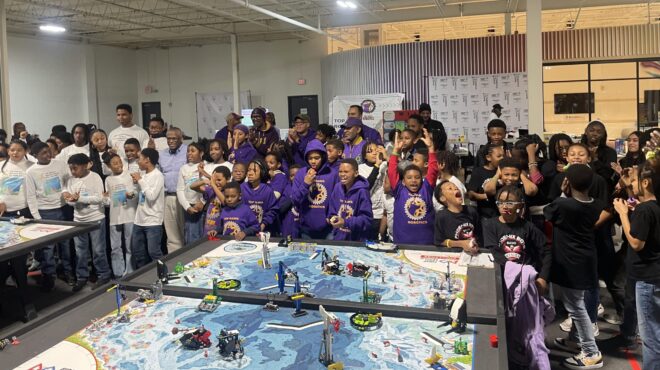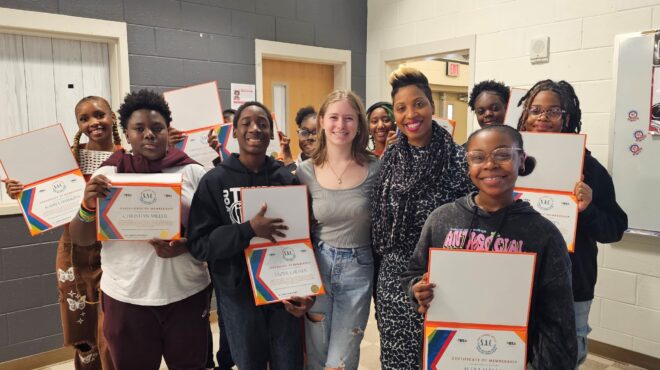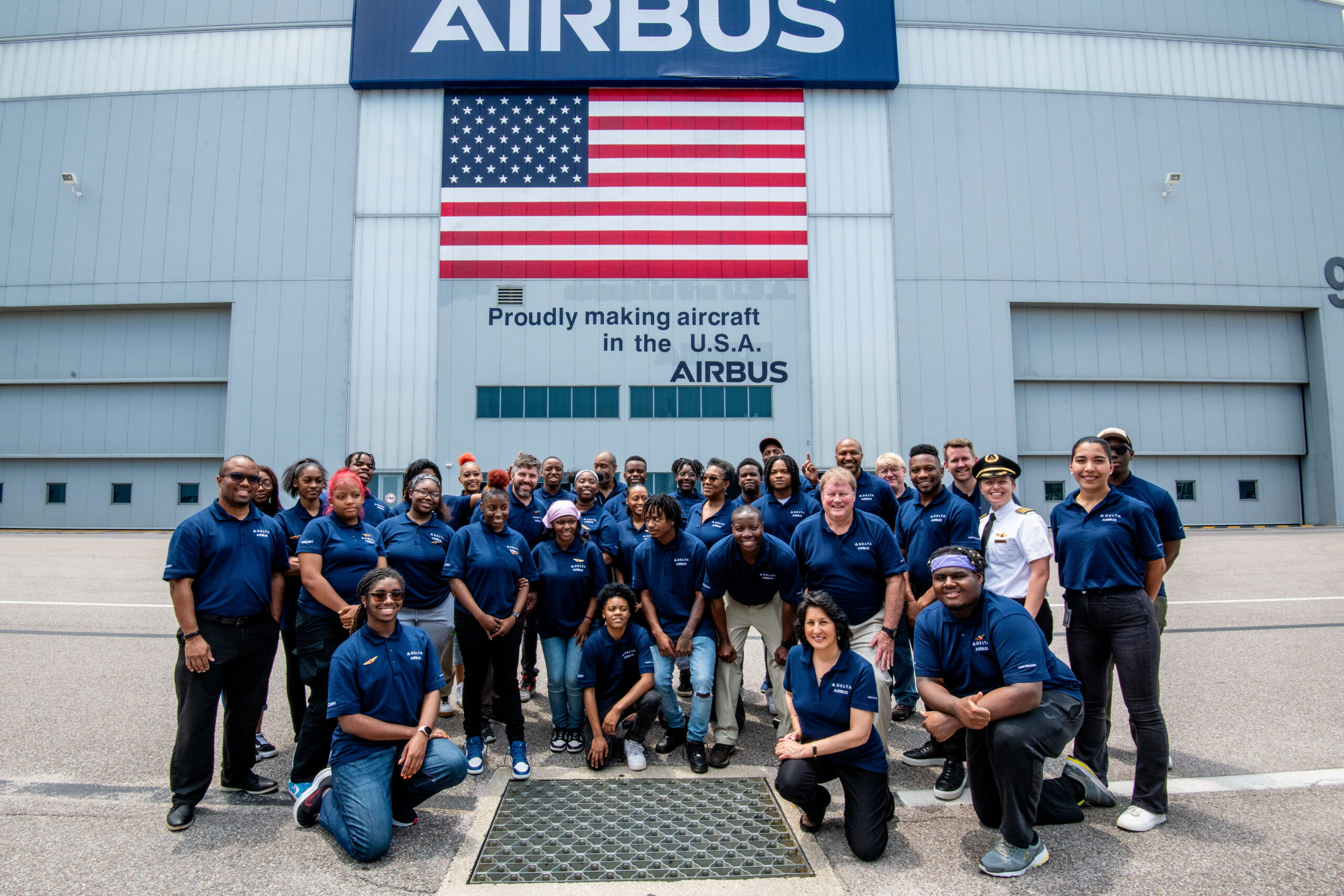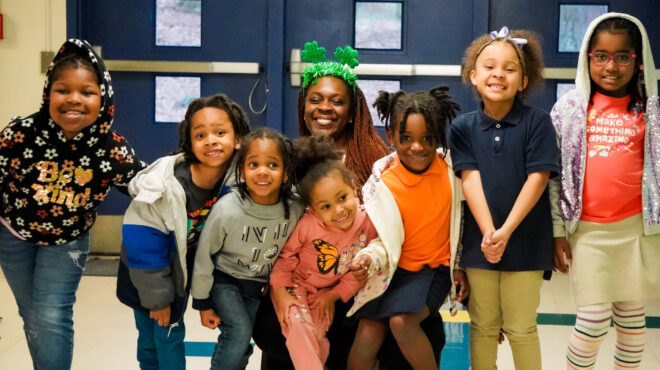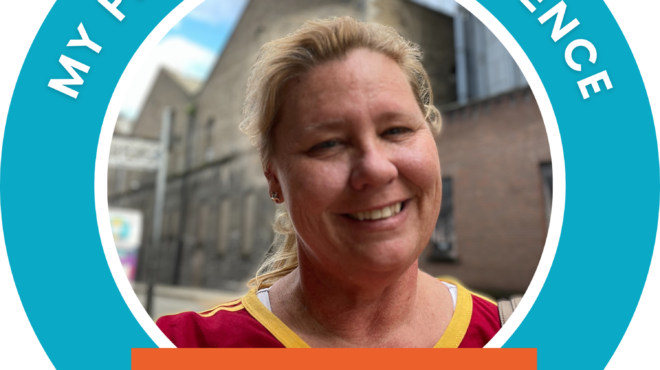By Greg Giornelli
President, Purpose Built Schools
At the tragic cost of many lives, 2020 shined a harsh spotlight on how systemic racism permeates America.
Our goal at Purpose Built Schools is to create life-changing opportunities for students and families. We do that by explicitly identifying and dismantling the systems of racism that are barriers to those life-changing opportunities. That approach informs our long-term strategy and daily work.
The visible – and not so visible – systems of racism in our schools
In America, Black students are more likely to be suspended or expelled from school, but less likely to be enrolled in gifted enrichment programs.
Many schools serving predominantly Black students experience higher transiency rates, disrupting the long-term secure adult relationships at the heart of learning.
Many of us applaud schools that make a difference with low-income, minority students by concentrating solely on reading and math – all at the expense of the enrichment opportunities that middle and upper class families expect and demand in their schools.
The very curriculum taught to Black students reflects generations of systemic bias and racism. For example, one part of Georgia’s K-5 state standards requires knowledge of 70 historical figures – only 18 of whom are people of color.
Many believe that Black students in inner city schools must be silent and obedient in order to succeed, while schools in white communities give freedom, voice, and choice to students.
Schools serving low-income families can be unwelcoming and intimidating to caregivers, subtly discouraging parental involvement.
What is the cumulative impact of this systemic racism in our schools? On average, Black and Latino high school seniors perform math and read at the same level as 13-year-old white students. The high school graduation rate for Black Americans is lower than their white peers in every state. And in our four schools at Purpose Built Schools, when we began our partnership with Atlanta Public Schools three of the schools were in the bottom 4 percent of all Georgia schools as ranked by student achievement.
We believe we can remove these systems of racism from schools. It’s already working at Purpose Built Schools. We have seen significant, sometimes unexpected, gains across a multitude of important metrics.
In less than five years, across four schools that comprise the lowest income feeder pattern in Georgia and that serve a population that is 100 percent students of color, we have reduced suspensions by 40 percent, lowered transiency by one fifth, and increased caregiver attendance at parent-teacher conferences by 17 percent. It’s no accident that at the same time three of our four schools have increased student achievement by more than 93 percent of all schools in Georgia.
Here’s how we’re doing it.
Culturally Relevant Project-Based Instruction
We incorporate culturally relevant curriculum and anti-racist teaching in our schools from PreK through 12th grade. Through project-based learning, students explore racial justice and equity and develop real-life solutions to make change in their communities. Among other relevant topics, instructional projects for the first quarter of the 2020-21 school year included: “How can we take on the issue of food deserts in Carver Homes” (Slater, 2nd grade project); “How can we show empathy and concern for the senior residents of our community?” (Thomasville Heights, 4th grade); and “Raising our collective voices for change: how do we fight the power?” (Price, grades 6-8). Carver STEAM Academy’s 9th grade explored the impact of the Beltline on gentrification in our schools’ communities.
Enrichment Opportunities That Close Gaps
We offer robust enrichment programs, including dance, chess, robotics, environmental science, urban farming, band, and art, designed to narrow the opportunity gap, thus giving our students the same exposure and experiences as their middle-class white peers and evening the playing field of career advancement and income earning potential. Our instruction is STEAM-based, designed to address the underrepresentation of people of color within the STEM workforce. Our students are chess champions, coders and engineers. We offer a robust college and career readiness program – including the first P-TECH program in Georgia (in partnership with IBM and Atlanta Technical College) – designed to address inequities in employment and college acceptance and graduation rates, all of which are tied to social mobility.
Out of School Programming for Students
Students of middle and upper income families naturally engage in a range of enriching, supportive programs outside of schools, but most students of low-income families cannot afford the same opportunities. We provide extensive after-school and summer programming – for more than 850 students (half our enrollment) – including partnerships with the Boys & Girls Club and Horizons and many others. Our students explore a wide range of interests through partnerships with Bearings Bike Shop, A+ Squash, and Atlanta Youth Rugby. Our high school students have the opportunity build a working airplane through Tango Flight.
Family Support and Community Revitalization
We are committed to playing a part in community revitalization, supporting families to remain in place even while neighborhoods change, through partnerships that provide basic supports such as mental and physical health, housing quality, affordability and stability, food access, and employment opportunities. We tackle food insecurity head-on by operating a school-based farm and sponsoring two food co-ops, fostering family self-sufficiency while also filling gaps in food access. We address housing quality, transiency, and displacement through a partnership with Atlanta Volunteer Lawyers Foundation that places a housing advocate in every school and an attorney for every family that needs one.
Restorative Justice as the Basis for Student Culture and Discipline
We believe that an important goal of any student discipline system is to keep students in school and learning. Our discipline system is rooted in principles of restorative justice, and our teachers participate in a wide range of trauma-informed professional development (including partnerships with Chris 180 and FuelEd) to develop the necessary mindset and skills to make restorative justice effective and consistent. We believe students should have a say in their school culture and discipline system, and as just one example Price Middle School students created their own Student Discipline Handbook as part of a project-based exploration of how student culture impacts learning.
A Deep Commitment on a Personal Level
This year we partnered with Potential Unleashed Consulting to ensure that each and every PBSA employee has the opportunity to pursue their own equity journey and examine how their personal habits, attitudes, beliefs and expectations can impact and influence their own role in breaking down systemic racism. We are collectively, and individually, committed to creating an organizational culture that allows for personal growth and sustainment when it comes to racial justice.
Leadership and Representation
An important element of student success is to see people like themselves in leadership roles, and students must feel comfortable having open dialogue about the challenges they face. Our teachers speak openly and candidly to our students about racism and what it means to be Black in today’s world. And our team reflects our school and neighborhood populations: Purpose Built Schools’ staff are 91 percent Black; we have four dynamic, amazing Black principals; and our organizational leadership is 70 percent Black.
We know that we are at the beginning of a long journey, and even with our initial successes, we don’t expect sustainable change to happen overnight.
We also understand that we’re just four schools in a massive educational system built on systemic racism. But the important work of addressing these systems plays out daily in the way Black students and families experience the educational system through their neighborhood school. And we can start doing something about it right now.
We know our students are born with the same potential as any child. We just have to give them that chance.

